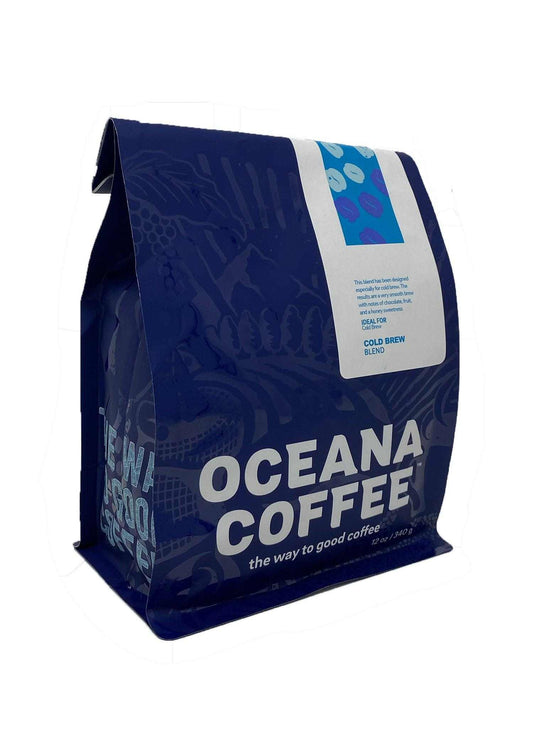Is Coffee Actually Good for You? (Or Are We Just Dreaming and Wishing?)
Healthy eating fads come and go. Cutting out carbs; avoiding all foods containing yeast; or eating only what a caveman would eat. But even in the midst of various clean living habits, many people still wonder—what’s the deal with coffee? As the second most popular beverage in the world (behind water), coffee certainly deserves some investigation and reporting on how it affects the health.
Is Coffee Good for You? Is it Bad for You?
In the past, our beloved bean has sometimes received an undeserved reputation of being “unhealthy”. Parents have been known to keep it from children, citing the reason that it might stunt their growth. (Of course, that may have simply been a ploy to keep the caffeine from the little ones who already have too much energy!)
Doctors have been known to tell patients to cut out the coffee to be healthier. It is true that a three-pot-a-day habit is probably going to have you functioning in a cycle which eventually cause you to crash and burn. But that’s an extreme.
What about the moderate use of coffee? Can coffee be part of a healthy lifestyle?
Questions about Coffee Habits:
While there are a great many health benefits that can be seen from the use of coffee in a person’s diet, there are first there are some variables that need to be considered prior to discussing health benefits:
- How do you drink your coffee? A cup of black coffee, possibly with a bit of milk, is a completely different story than a Double Shot Caramel Pumpkin Cinnamon Mocha with Whip. If you add in giant amount of sugar, fat, or artificial flavorings, you’re taking away the power that the coffee might have had to benefit your health. (These fancied drinks can equal up to 700 calories, which is about 1/3 of a normal person’s daily intake.)
- How much coffee are you drinking? Two to three cups (about 8 ounces each, not the jumbo monster size) a day? Maybe even 4 or 5? Three to five cups per day is described as a moderate drinker of coffee. More than that and it becomes ineffective.
- Are you addicted? Are you a chain coffee drinker—finishing one pot and immediately starting on the next? Do you get a headache if you try to go a whole day without drinking any coffee? In this case you are likely cancelling out any of the health benefits that a moderate drinker of coffee might experience.
Coffee and Weight Gain/Loss
Without harping on the point, it’s important to remember that coffee itself is an extremely low-calorie drink. Regularly brewed, black coffee contains about 5 calories or less per cup. You may actually burn more calories by lifting the cup to your face to drink it than you would consume.
As a stimulant, coffee can be a booster in helping you to burn fat. In raising the metabolism and aiding in the oxidation of fatty acids, coffee adds a natural boost to your diet. And it can make your physical exercise performance much stronger—by over 10%—because of the adrenaline boost it can hand out.
So as long as you aren’t stuffing your coffee with fatty and sugary additives, you’ll find that coffee can be a beneficial addition to your weight loss plan.
Nutrients in Coffee
More than just a jolt of caffeine, coffee offers some nutritive value that can be associated with a healthy diet. Coffee offers several of the B Vitamins, including B5 (Pantothenic Acid), B2 (Riboflavin), B3 (Niacin), B1 (Thiamine), as well as minerals such as Manganese and Potassium. Although it should not be used as a substitute for breakfast, or any other meal, it’s certainly a great boost to a nutritional diet.
In fact, the USDA just recently reviewed the effects of coffee on health and determined that “modern coffee consumption can be incorporated into a healthy lifestyle….” (http://health.gov/dietaryguidelines/2015-scientific-report/PDFs/Scientific-Report-of-the-2015-Dietary-Guidelines-Advisory-Committee.pdf#page=397)
Medical Suggestions & Findings about Coffee
Several medical studies have been performed in an effort to discover whether there are health benefits or risks related to the moderate drinking of coffee daily. In fact, some studies have shown evidence that drinking 4 cups or more per day may actually provide a preventative effect against the occurrence of a variety of different diseases. (http://www.ncbi.nlm.nih.gov/pmc/articles/PMC3526718/)
- Stroke. Those who drink 4 or more cups of coffee per day may have a decreased risk of stroke.
- Hypertension. Although those who drink 1-3 cups of coffee per day may have a slightly higher risk of high blood pressure (because, well, caffeine does that), those who drink 3+ cups per day have no increased risk.
- Cardiovascular disease. Some studies have shown that there may be an association between moderate coffee consumption and a decreased risk of heart disease.
- Diabetes. Coffee has also been known to have an impact on elevating insulin sensitivity, potentially helping to decrease the development of Type II diabetes.
- Gallstones. Men and women who drink coffee may have up to 40% less chance of the occurrence of gallstones that those who do not.
- Liver Cancer. Although more research needs to be done, some studies suggest a more than 40% decrease in liver cancer simply by increasing coffee consumption by 2 additional cups per day. (http://www.sciencedirect.com/science/article/pii/S0016508507005689)
- Other Diseases. The degradation of nervous system and brain function may be prevented by those who drink coffee moderately. Protection includes diseases such as Parkinson’s disease, Alzheimer’s disease, and other cognitive decline. Yes, we are not ashamed to say that drinking coffee will absolutely make your brain work better. (http://onlinelibrary.wiley.com/doi/10.1111/ggi.12123/abstract)
With this kind of information coming into the limelight, it’s clear that coffee has been marked with a stigma that it does not deserve. In fact, one claim that we’ve often believed in but now actually have proof about is this:
Coffee may actually decrease the risk of death. (http://www.nih.gov/news/health/may2012/nci-16.htm )
That’s right. Not only does coffee increase your quality of life, it can actually increase the length of it as well. And we’re not just dreaming or wishing.





